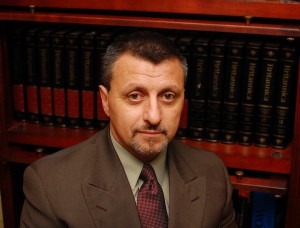 SJC must split their decision in the Chism appeal
SJC must split their decision in the Chism appeal
The defense team for Philip Chism are mustering a complex set of motions in an all out assault to protect their client. Chism, the 16-year-old is charged with first-degree murder and rape of his 24 year old math teacher, Colleen Ritzer, at Danvers High School in October of 2013. Chism was 14 years old at the time and his lawyers contend that he was coerced into admitting details of his actions and involvement in Ritzer’s death. The media organizations are demanding that the material is public information. The lawyers have appealed and lost twice, to have the evidence not only suppressed but outright eliminated as a body of evidence for the case. Superior Court Judge David Lowy has viewed the tape several times and consider its importance in reaching a decision on the case.
Therefore, in January he denied the motion to impound the evidence made by defense attorneys. On February 12th, Appeals Court Justice Peter Agnes supported the prosecution’s claim that Judge Lowy did not abuse discretion in denying the impoundment request.
So, now the stage is set for an appeal made directly to the Supreme Judicial Court. The appeal is centered on an outright dismissal of the evidence based on the defense’s assertion that Chism’s Miranda Rights were not delivered, and he was coerced into making the taped confession. Secondary to that of course are arguments that keeping the confession a secret is a legitimate right, because of the coercive offenses by the Danver’s police against their client.
I believe that for justice to be properly upheld, the SJC should deliver a split decision in this situation that will balance the evidence for both sides and allow the case to continue. The taping should remain closed to public view during the course of the trial at least. Since the claim of coercion can be carried forward by the defense throughout the trial, if a mistrial occurs because of it, then the defense will have earned the claim they are now trying to secure through the appeal. More importantly, the evidence must be allowed because it holds the material aspects of Chism’s alleged complicity.
Rarely does the highest court in the sate have an opportunity to balance the scales of justice. It’s a delicate operation, but it has to be done to allow for this case to develop properly and justice to be served.
***
The eyes of the hopeful revealed the solemnity of the hour.
The moment was created by a gathering at the Boston Common on Sunday to pay homage to those who lost their lives in Paris. Though the events were distant, the drivers of those events — the jihadist scourge that has enveloped the world and sponsors the mass killings of defenseless civilians — was foremost on the minds of many. For others there were only thoughts of redemption, forgiveness. Perhaps for others still, their hearts were filled with loathing and anger.
The mood was made somber with song and music. The flowers and candles provided the universal backdrop of hope. The requisite, official declarations by the enlightened and the muffled whispers of the ordinary, created a mosaic of emotions.
In this city, the call for peace is a recurring theme. The memory of the Boston Marathon bombings remains, still an open wound. Countless lives have been permanently altered by events driven by hatred, and yet the response is always the same.
The rallies, vigils and conventions of worship assert the notion that humanity, even while under perpetual assault by the heavily armed is remarkably resilient. Humanity has the capacity to re-generate through solidarity of purpose. Perhaps the ability for rapid renewal is an innate mechanism to perpetuate survival.
So, with a backdrop of collective defiance, survival is the central issue. That is, survival of not just humans in the physical form but of their thoughts. Though bullets and fire can destroy the creator of words and images, once those words and images emanate from the creator’s pen, keyboard, paint brush or artist’s chalk the expression is irrevocably etched in the collective consciousness and cannot be censured.
It becomes therefore inconsequential what happens to the creator afterward. That a society can preserve and perpetuate the thoughts of a departed is in essence at the very core of democratic freedom. Under these conditions tolerance is bolstered. Once tolerance is widely accepted society distinguishes itself in contrast to those social orders that reject it and therefore descend into anarchy.
The people that killed those who offended them were moved by a version of religious principles that have no precedent in the very religion they cite as the rationale for their actions. All they had to do was to assimilate to the teachings of the Quran more comprehensively and especially the words of their prophet: “ God will not show mercy to those who did not show mercy to others.”
Freedom reigns in the world because of the courage of conviction of the few whose thoughts are preserved in a world that weighs tolerance more heavily than those who embrace darkness and death.
